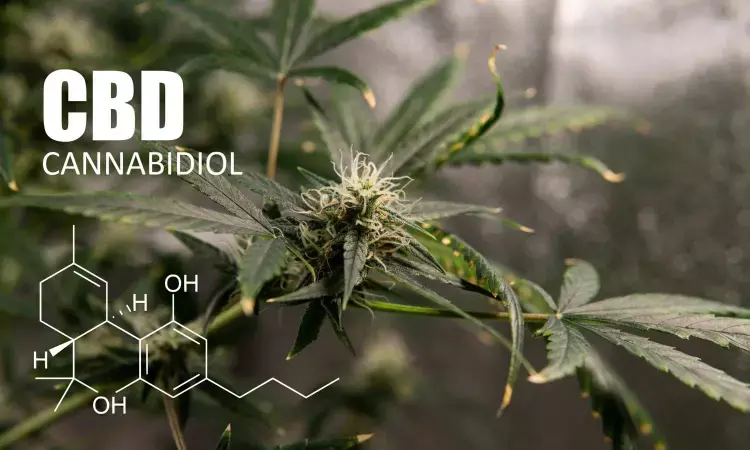- Home
- Medical news & Guidelines
- Anesthesiology
- Cardiology and CTVS
- Critical Care
- Dentistry
- Dermatology
- Diabetes and Endocrinology
- ENT
- Gastroenterology
- Medicine
- Nephrology
- Neurology
- Obstretics-Gynaecology
- Oncology
- Ophthalmology
- Orthopaedics
- Pediatrics-Neonatology
- Psychiatry
- Pulmonology
- Radiology
- Surgery
- Urology
- Laboratory Medicine
- Diet
- Nursing
- Paramedical
- Physiotherapy
- Health news
- Fact Check
- Bone Health Fact Check
- Brain Health Fact Check
- Cancer Related Fact Check
- Child Care Fact Check
- Dental and oral health fact check
- Diabetes and metabolic health fact check
- Diet and Nutrition Fact Check
- Eye and ENT Care Fact Check
- Fitness fact check
- Gut health fact check
- Heart health fact check
- Kidney health fact check
- Medical education fact check
- Men's health fact check
- Respiratory fact check
- Skin and hair care fact check
- Vaccine and Immunization fact check
- Women's health fact check
- AYUSH
- State News
- Andaman and Nicobar Islands
- Andhra Pradesh
- Arunachal Pradesh
- Assam
- Bihar
- Chandigarh
- Chattisgarh
- Dadra and Nagar Haveli
- Daman and Diu
- Delhi
- Goa
- Gujarat
- Haryana
- Himachal Pradesh
- Jammu & Kashmir
- Jharkhand
- Karnataka
- Kerala
- Ladakh
- Lakshadweep
- Madhya Pradesh
- Maharashtra
- Manipur
- Meghalaya
- Mizoram
- Nagaland
- Odisha
- Puducherry
- Punjab
- Rajasthan
- Sikkim
- Tamil Nadu
- Telangana
- Tripura
- Uttar Pradesh
- Uttrakhand
- West Bengal
- Medical Education
- Industry
Cannabinoids may curb smoking desire and help in cessation of smoking

USA: New research published in Chemical Research in Toxicology has shown that cannabidiol or CBD can inhibit nicotine metabolism, implying its usefulness for tobacco users to curb the urge for the next cigarette. Cannabidiol is a non-psychoactive component of cannabis.
More research is needed to confirm these effects in humans and determine dosage levels, but these findings show promise, said Philip Lazarus, WSU professor of pharmaceutical sciences.
A team led by Washington State University researchers tested the effects of CBD and its major metabolite on human liver tissue and cell samples, showing that it inhibited a key enzyme for nicotine metabolism. For the nicotine-addicted, slowing the drug's metabolism could allow them to wait before feeling the need to inhale more of it, along with all the other harmful things found in cigarette smoke.
“The whole mission is to decrease harm from smoking, which is not from the nicotine per se, but all the carcinogens and other chemicals that are in tobacco smoke,” said Lazarus, senior author of the study. “If we can minimize that harm, it would be great for human health.”
Cigarette smoking is still a major health problem with one in five people in the U.S. dying every year from smoking-related causes. While often seen as less harmful, many other nicotine delivery methods including vaping, snuff and chew also contain chemicals that can cause cancer and other illnesses.
In this study, the researchers tested CBD and its major metabolite, meaning what it converts to in the body, 7-hyroxycannabidiol, on microsomes from human liver tissue and microsomes from specialized cell lines that allowed them to focus on individual enzymes related to nicotine metabolism.
They found that CBD inhibited several of these enzymes, including the major one for nicotine metabolism, identified as CYP2A6. Other research has found that this enzyme metabolizes more than 70% of nicotine in the majority of tobacco users. The impact of CBD on this particular enzyme appeared quite strong, inhibiting its activity by 50% at relatively low CBD concentrations.
“In other words, it appears that you don't need much CBD to see the effect,” said Lazarus.
Lazarus’ team is currently developing a clinical study to examine the effects of CBD on nicotine levels in smokers, measuring nicotine levels in their blood versus smokers taking a placebo over the course of six to eight hours. Then, they hope to do a much larger study looking at CBD and nicotine addiction.
Reference:
Shamema Nasrin, Shelby Coates, Keti Bardhi, Christy Watson, Joshua E. Muscat, and Philip Lazarus Chemical Research in Toxicology DOI: 10.1021/acs.chemrestox.2c00259
Dr Kamal Kant Kohli-MBBS, DTCD- a chest specialist with more than 30 years of practice and a flair for writing clinical articles, Dr Kamal Kant Kohli joined Medical Dialogues as a Chief Editor of Medical News. Besides writing articles, as an editor, he proofreads and verifies all the medical content published on Medical Dialogues including those coming from journals, studies,medical conferences,guidelines etc. Email: drkohli@medicaldialogues.in. Contact no. 011-43720751


